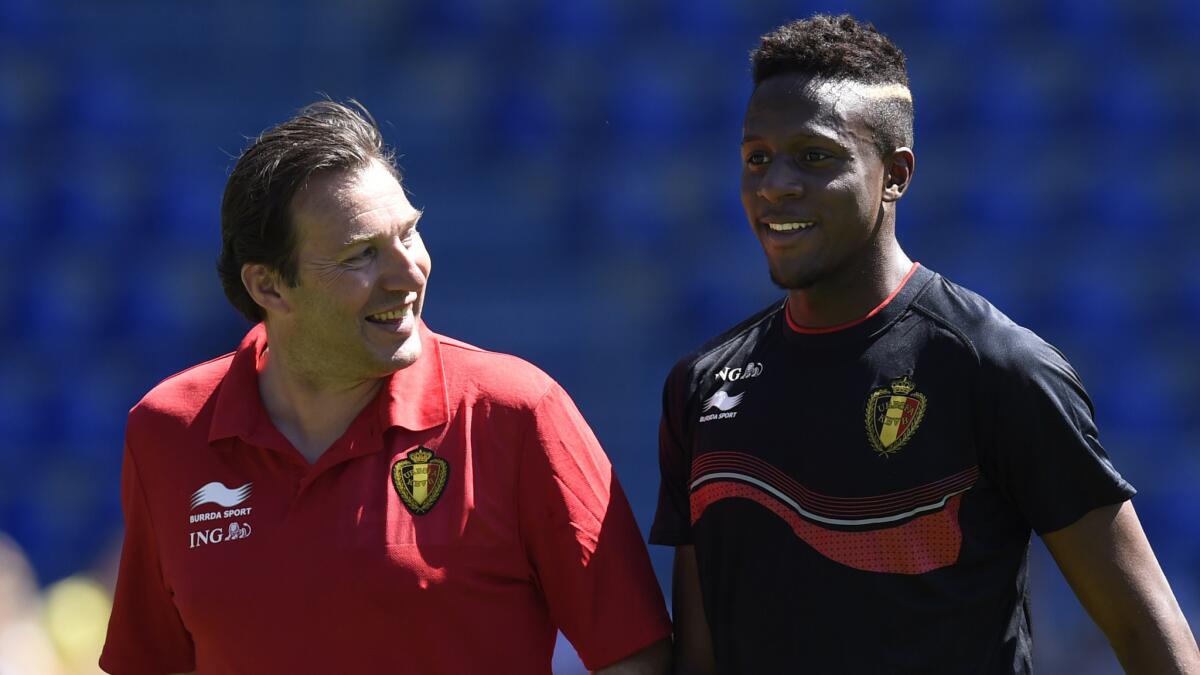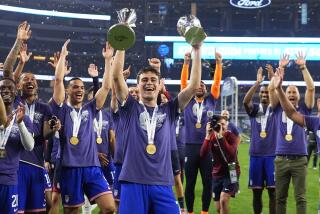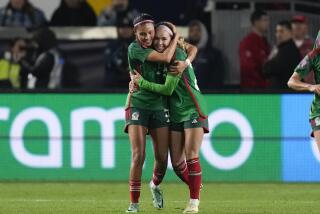Belgium rebuilt its whole soccer system to shape its World Cup team

When Belgium was knocked out four games into the 2002 World Cup, it looked more like an ending than a beginning.
And it was since it marked the conclusion of the country’s Golden Generation, a period that saw Belgium qualify for six consecutive World Cups and make it to finals of the European Championships.
But it also marked a new beginning. Because out of the ashes sprang a new, potentially better national team that could carry Belgium beyond the second round of a World Cup this summer for just the second time in the country’s history.
Belgium’s national soccer federation borrowed liberally from the philosophies and training methods of the Netherlands and France, focused heavily on development, built a new national training center and taught its youth teams to play the same style.
The ideas weren’t always popular but they were effective, and now that investment is beginning to pay off with the young team Belgium has sent to Brazil marking the start of what the country hopes will be a second Golden Generation.
“This generation will shine at their brightest in the years to come. They’re still young and can improve a lot,” Belgium Coach Marc Wilmots told reporters. “However, we have to be realistic and give them time.”
Wilmots retired from the national team at the end of the first golden era in 2002, only return to at the start of second one as coach.
Time definitely appears to be on Belgium’s side because its 11 starters average less than 25 years of age. And none of the team’s four brightest stars –- goalkeeper Thibaut Courtois, midfielder Kevin De Bruyne and forwards Eden Hazard and Romelu Lukaku — are older than 23.
That, more than anything, validates the blueprint Michel Sablon drew up when he took over as Belgium’s technical director at a time when the national program needed an overhaul.
A major turning point in that turnaround, Sablon told London’s Guardian newspaper, was an extensive University of Louvain study of youth football the federation commissioned. Among the findings was that youth coaches placed too much emphasis on winning over development, so Sablon switched those priorities around.
He also dictated that at every national age-group level teams play a high-tempo 4-3-3 system, which drew resistance from his bosses in the federations and from youth coaches.
But it wasn’t long before he was proved right.
In 2007, a stellar team led by Hazard and Christian Benteke reached the semifinals of Europe’s U-17 championships. No Belgium team had ever done that before.
A year later a slightly older Belgium team made it to the semifinals of the Olympic Games.
From there the players went their separate ways, with all 23 men on the World Cup roster playing club soccer outside Belgium, the majority in the English Premier League. They all sprang from the same foundation, though, which Hazard says is key.
“When we do get together, it is important we have all been immersed in the same football culture,” he told Esquire magazine last year. “In England, it is one country and pretty much one style of football, very intense, generally high-tempo, so we do share that. There are others who come in from [Spain’s] La Liga or elsewhere, really good players who bring different things, but the players in England do share something, I think.”
Even without the 23-year-old Benteke, who ruptured an Achilles’ tendon this spring and is out of the World Cup, Belgium is clearly the class of its group in Brazil and should have no trouble reaching the second round. And with a talented core that stretches from front to back –- from Hazard through midfielder Marouane Fellaini to central defender Vincent Kompany to Courtois –- Belgium could go quite a bit further.
That would make history, of course, because the only other time Belgium won a game beyond the group stage was in 1986 when it reached the semifinals.
“If everyone continues to think of the collective, everything will go well,” Wilmots told the soccer monthly Fourfourtwo.
WORLD CUP PREVIEW
GROUP H
ALGERIA
FIFA World ranking: 22.
Last World Cup: 2010.
Best World Cup finish: Group stage.
How qualified: Beat Burkina Faso in CAF playoff.
It’s a fact: Author Albert Camus was a goalkeeper in school, which probably makes the University of Algiers the only college to have had a Nobel Prize-winning keeper.
The skinny: Algeria, which hasn’t won a major trophy since capturing the African Cup of Nations in 1990, has had to fight for respect. South Africa marked the team’s first appearance in a World Cup in 24 years and Algeria exited winless again after losing its final game to the U.S. on Landon Donovan’s goal in stoppage time. This young, inexperienced team is playing with more flair behind Sporting Lisbon striker Islam Slimani but it still struggles on offense. Coach Vahid Halilhodzic loves to go to his bench, mixing and matching his lineup to take advantage of his opponent’s weaknesses.
BELGIUM
FIFA World ranking: 11.
Last World Cup: 2002.
Best World Cup finish: Fourth place (1986).
How qualified: UEFA Group A winner.
It’s a fact: Belgium will be the least-traveled team in the group stage, having to travel less than 1,400 miles back and forth to its three group-stage games. The U.S. is traveling nearly 9,000 miles.
The skinny: With 23-year-old Chelsea forward Eden Hazard up front. Manchester United’s 26-year-old Marouane Fellaini in midfield, Manchester City’s 28-year-old captain Vincent Kompany on defense and Atletico Madrid keeper Thibaut Courtois, 22, in goal, Belgium has a solid, experienced collection of young, big-name stars who have performed well in the hyper-competitive English Premier League. As a result, the World Cup won’t intimidate them. And they’ve played well lately, shutting out Sweden and Tunisia in their last two warmups. One question mark is the fitness of 21-year-old striker Romelu Lukaku, who injured his ankle in last week’s friendly with Tunisia.
RUSSIA
FIFA World ranking: 19.
Last World Cup: 2002.
Best World Cup finish: Group stage.
How qualified: UEFA Group F winner.
It’s a fact: Only two of the 42 players called up in the last year compete for teams outside the Russian Premier League. Neither one made the World Cup roster.
The skinny: The Russian soccer federation has its eyes on 2018, when the country will host the World Cup. But five of the team’s core players are older than 30 and probably won’t be around then so they’ll be trying to make a statement here. Former England Coach Fabio Capello took over on the sidelines two years ago after Russia’s disastrous performance in the 2012 Euros and guided the team past Cristiano Ronaldo’s Portugal in World Cup qualifying, conceding just five goals in 10 games. This is Russia’s second appearance in the World Cup since the breakup of the Soviet Union.
SOUTH KOREA
FIFA World ranking: 57.
Last World Cup: 2010.
Best World Cup finish: Fourth place (2002).
How qualified: AFC Group A runner-up.
It’s a fact: This summer will mark South Korea’s eighth consecutive appearance in the World Cup and ninth visit overall, most among Asian nations.
The skinny: In nine World Cups, South Korea has made it out of the group stage only twice but both those performances have come since 2002. The South Koreans have their work cut out for them if they hope to keep that momentum going in this group, where Belgium and Russia are the heavy favorites. But dangerous Bayer Leverkusen striker Son Heung-Min gives Korea a potent scoring threat, and if the young team — just one player is older than 30 — plays well against Russia it could make things interesting.
SCHEDULE
June 17: Belgium vs. Algeria at Belo Horizonte; Russia vs. South Korea in Cuiaba
June 22: Belgium vs. Russia at Rio de Janeiro; South Korea vs. Algeria in Porto Alegre
June 26: South Korea vs. Belgium at Sao Paulo; Algeria vs. Russia at Curitiba







